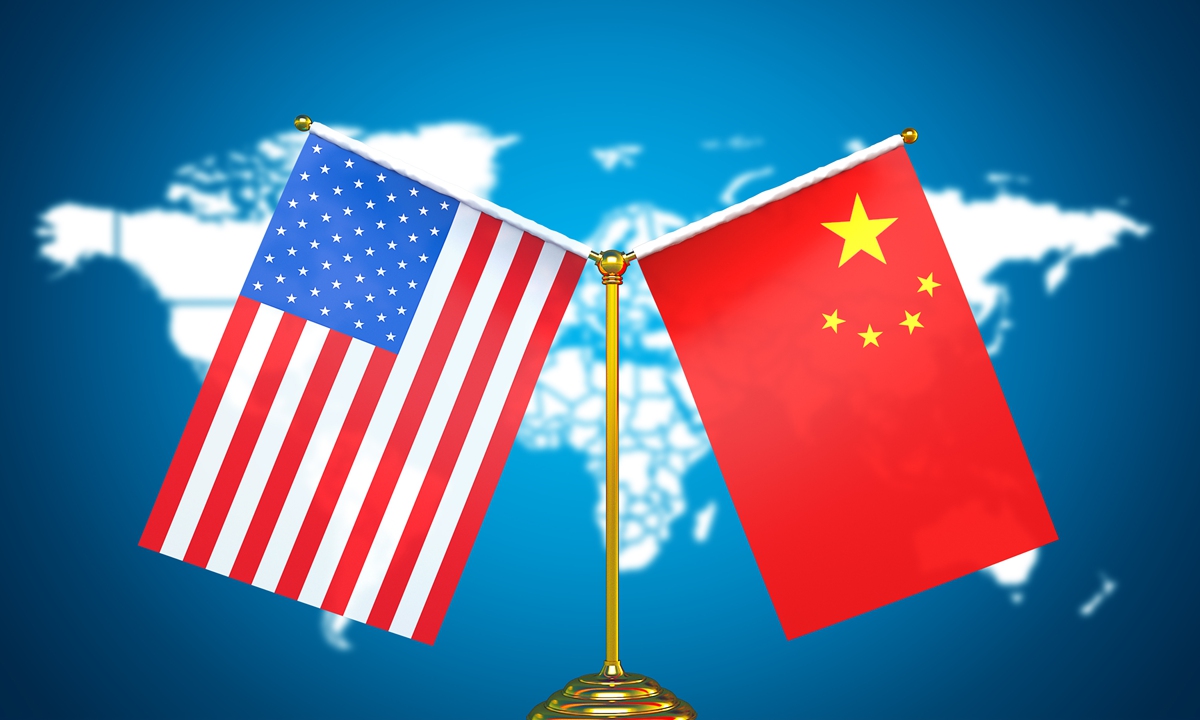World's gaze toward San Francisco is filled with anticipation: Global Times editorial

Photo:VCG
Chinese President Xi Jinping left Beijing on Tuesday for a China-US summit meeting in San Francisco, the US, at the invitation of US President Joe Biden. Simultaneously, he will attend the 30th APEC Economic Leaders' Meeting. This marks President Xi's first visit to the US since 2017. At a time when China-US relations show signs of bottoming out and stabilizing, the significance of head-of-state diplomacy is self-evident. This meeting is expected to set the course for the future development of the world's most important bilateral relationship, not only holding immense importance for both nations but also capturing the attention of the international community.
Since the middle of this year, there has been a noticeable increase in contacts between China and the US on multiple levels. On the official front, various functional departments of both countries have implemented the consensus reached by the leaders of the two countries in Bali last November, engaging in a series of contacts and establishing several working groups. On the civilian front, the mutual exchanges hindered by the pandemic have shown signs of recovery this year. American businesses and entrepreneurs exhibit a high enthusiasm for the Chinese market, while the desire within both societies to promote cultural exchanges has strengthened. This reflects the inherent dynamics of both China and the US. As President Xi pointed out during the Bali summit, China and the US share more, not less, common interests.
Currently, China-US relations have reached another crucial juncture. Although there is a trend of stabilization after a period of volatility, this momentum remains unstable, facing challenges of various uncertainties. Especially with next year being a US election year, negative factors impacting China-US relations may emerge unexpectedly. In this context, how to further stabilize the foundation of China-US relations and create long-term positive momentum for moving forward is a challenging but significant agenda that both countries must face. This is not only in the fundamental interests of the two peoples but also highly anticipated by the international community. Against this backdrop, the visit by the Chinese leader to the US demonstrates sincerity and goodwill in enhancing China-US relations. It also reflects a responsible attitude towards history, people, and the world.
It can be said that there is a mutual desire between China and the US to stabilize their bilateral relations, creating significant room for both countries to meet each other halfway. It is not difficult to see that after implementing a series of policies to severely suppress China, Washington now realizes that once the relationship between the two countries breaks down, it will lead to irreparable consequences. Therefore, at least in words, it expresses the intention not to seek "decoupling" from China, but instead emphasizes "crisis management." Domestically in the US, there is a growing call for stabilizing relations with China. This is not because conscience has guided the US, but rather because non-conflict, non-confrontation, and peaceful coexistence are the common interests of both countries. This also suggests that while the contradictions and differences between China and the US objectively exist, their common interests are extensive and the reality of mutual dependence cannot be denied.
In fact, it is normal for such a significant relationship like China-US relations to have some bumps and wrinkles. The result will be completely different depending on whether we approach them with a constructive attitude or with a "zero-sum mind-set" or even a "negative-sum mind-set." For example, the fentanyl issue, which is of great concern to the US side, was initially a domestic problem for the US. China assisted the US in good faith with drug control, and the two countries once made good progress. However, the US side later responded with hostility and unreasonably imposed sanctions on relevant Chinese institutions and individuals, further undermining the foundation of bilateral cooperation. This is a real-life version of "lifting a stone only to drop it on one's own foot." Now the two countries are facing new opportunities, and whether they can restore drug control cooperation depends on the US. The same applies to many other issues.
As the initiator of the difficult situation in China-US relations, the US side, in particular, needs to take practical actions to prove its sincerity in stabilizing the bilateral relationship. In fact, the uncertainty in stabilizing the bilateral relationship has consistently come from the US side, both in the past, present, and potentially in the future. Since the news of the meeting emerged, from White House officials, members of Congress to various US media outlets, they have made many demands and suggestions to China. They are adept at shaping public opinion before major meetings to gain the initiative. In fact, this approach has caused greater disruptions to the US side. China's position and attitude toward China-US relations, as well as its requirements for the US side, are clear and consistent, and there is no need to elaborate on them further here.
Both China and the US are major countries and permanent members of the United Nations Security Council, and they bear a common responsibility for maintaining world peace and development. Only when China-US relations stabilize and improve can the two countries join hands to address global challenges and promote world peace and development. This meeting in San Francisco will provide a valuable opportunity to promote the return of China-US relations to the right track. We hope the US side to demonstrate enough political courage and wisdom, meet the Chinese side halfway, and promote the construction of a correct way for China and the US to get along with each other, injecting stability and certainty into the turbulent world. This is in line with the fundamental interests of the people of both countries and is also the common expectation of the international community.
